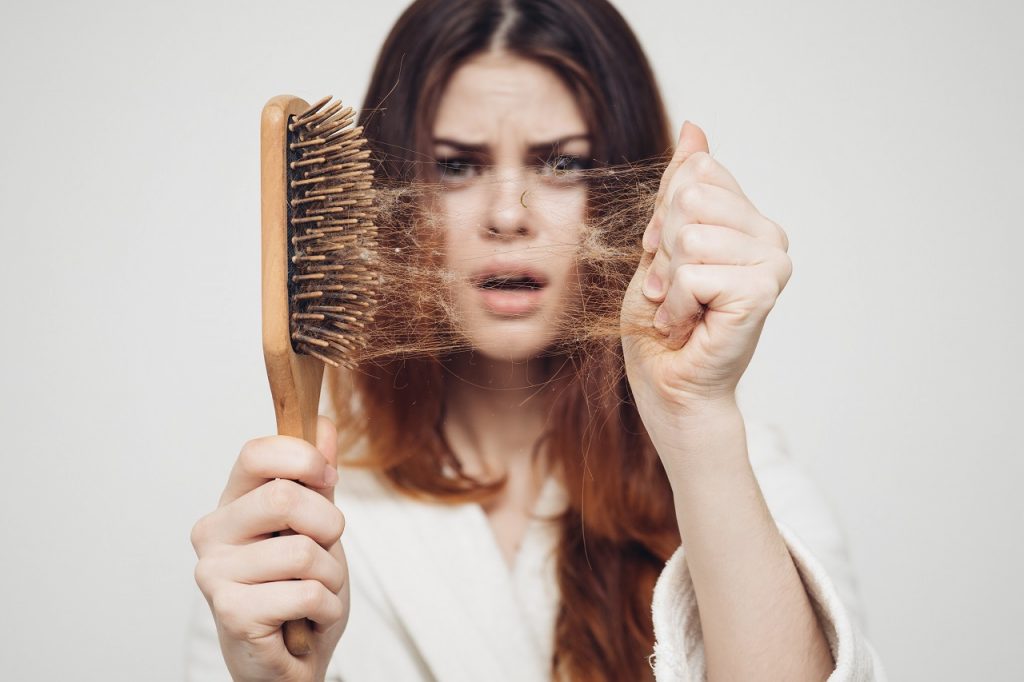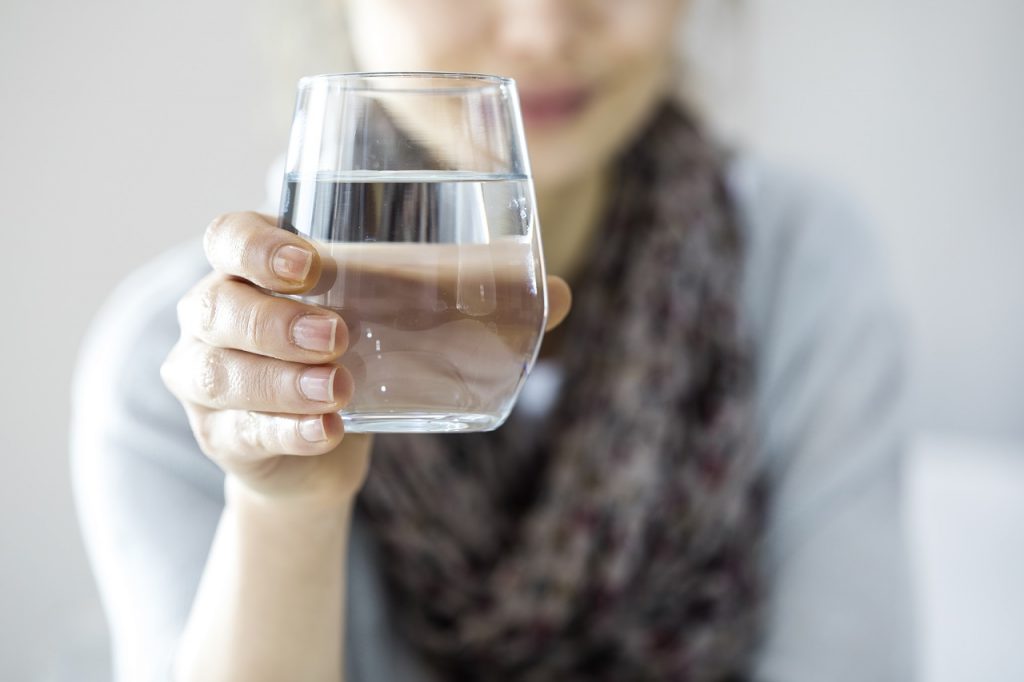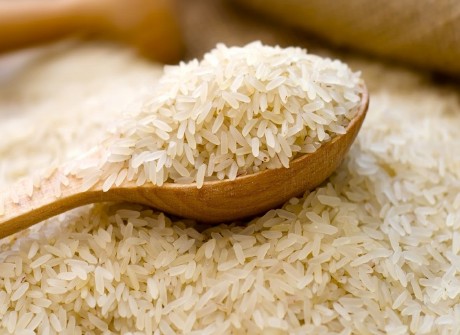
Hair is a tough protein made of Keratin. The hair bulbs at the base of the hair follicle divide and grow to build the hair shaft. Blood vessels nourish the hair bulb and deliver the hormones that modify hair growth. Hair grows at different rates in different people. Hair loss also happens at different rates in different people for different reasons like heredity, hormonal changes like hypothyroidism, medical condition or side effects of medicines, ageing or even stress. We do shed around 50-200 hair every day and it is perfectly normal. Also, in some situations like post pregnancy in women, when there is more than normal hair loss due to sudden imbalance of calorie intake, which usually gets resolved by itself. Whatever the reason for hair fall, these two small words can be a nightmare for many. Let’s understand what nutritional deficiencies can lead to hair loss!
Which Nutritional Deficiencies Can Cause Hair Loss?
- Vitamin D Deficiency: Vitamin D is very important for hair growth as it stimulates hair follicles and also helps in maintaining thickness of each hair strand. Low levels of Vitamin D in the body may cause thinning of hair or slow hair growth. Keratinocytes in skin metabolise Vitamin D to Keratin – a protein found in hair, skin and nails. Low levels of Vitamin D make it difficult for the Keratinocytes in hair follicles to regulate hair growth and its shedding. Low levels of Vitamin D are associated with higher stress levels which support hair fall. Getting 400-800 IU of Vitamin D a day is very important. This can be easily achieved with 10-30 minutes of sun exposure.
- Vitamin B7 or Biotin Deficiency: Though biotin deficiency is very rare in people (as biotin is found easily in foods like Banana, Carrot, Egg Yolks, Legumes, Nuts, etc.), it can occur by heredity or in people who consume excessive amounts of alcohol, smoke excessively, people with inflammatory bowel disease or in people who have raw egg whites which contain avidin that blocks absorption of biotin.
- Iron Deficiency: When one has iron deficiency, the circulation of haemoglobin is less – which means less oxygen uptake by the body and slower growth and repair of cells, including cells that stimulate hair growth. When there is less circulating oxygen in the body, the available supply is channelized to vital organs to keep them alive rather than to hair follicles. Without oxygen, hair follicles cease to function properly and eventually fall out. Including foods like Whole Wheat Grains, Beans, Chickpea, Tofu, Peas, Nuts, Raisins, Spinach and Chicken ensures that you have good iron stores in the body. When you notice more than usual hair in your shower drain or hair brush, it is time to get your haemoglobin levels tested.
- Vitamin C: While Vitamin C deficiency is rare as it is easily available in many food items, the common risk factors include poor diet, alcoholism, anorexia, smoking and chronic illness. Vitamin C plays a vital role in the absorption of iron from the intestines which leads to weakness and hair loss. Having citrus fruits like Oranges, Sweet Lime, Lemon, Strawberry, Guava and other foods like Sweet Potato, Chillies, Thyme, Kale and Broccoli on a regular basis, ensures your vitamin levels are maintained on a higher side
- Vitamin E: with its antioxidant properties helps in reducing oxidative stress on the scalp and reduces free radical damage and protects hair cells. Vitamin E helps improve scalp health and hair health. It creates a protective layer on the hair follicles and locks in moisture making it shiny and easy to manage. Vitamin E supports a healthy scalp by protecting the lipid layer and reducing dryness and scaling of the scalp. Food sources of Vitamin E include nuts and seeds like Almonds and Walnuts, Pumpkin and Sunflower Seeds, Wheat Germ Oil, Peanuts, Avocado, Mango and Spinach.
Tips To Reduce Hair Fall
- Eat well balanced meals containing protein, complex carbs and healthy fats
- Drink at least 8-10 glasses of water a day to aid the digestion and absorption of nutrients from your diet
- Include healthy snacks in between meals to maintain energy levels
- Include foods like Whole Grain Cereals, Eggs, Nuts, Leafy Vegetables, Tofu, Legumes, Quinoa, Beans, Avocado, Dairy, Orange and Lime to get all the essential nutrients to support healthy tresses
- Get good exposure to sunlight so that you maintain your Vitamin D levels, if not do supplement it regularly
- Maintain scalp and hair hygiene by using a mild shampoo at least 2 times a week
- Keep stress levels within normal limits
- Get good quality sleep and exercise at least 4-5 days a week
We hope this article on nutritional deficiencies that can cause hair loss helps you! For more on hair loss and hair care, check out Healthy Reads or speak to a certified expert by subscribing to GOQii’s Personalised Health Coaching here.
#BeTheForce

 A couple of months ago, my aunt practiced a month-long water fast. In essence, she only drank water throughout the day. No food, no tea, no coffee, no milk and not even coconut or lime water. In short, it was nothing but just water! When I got to know of this, I was initially taken aback. I rushed to my aunt and asked if she was alright and what was the need to punish her body in this manner. To which my aunt replied, “I am doing this for religious purposes”.
A couple of months ago, my aunt practiced a month-long water fast. In essence, she only drank water throughout the day. No food, no tea, no coffee, no milk and not even coconut or lime water. In short, it was nothing but just water! When I got to know of this, I was initially taken aback. I rushed to my aunt and asked if she was alright and what was the need to punish her body in this manner. To which my aunt replied, “I am doing this for religious purposes”.



